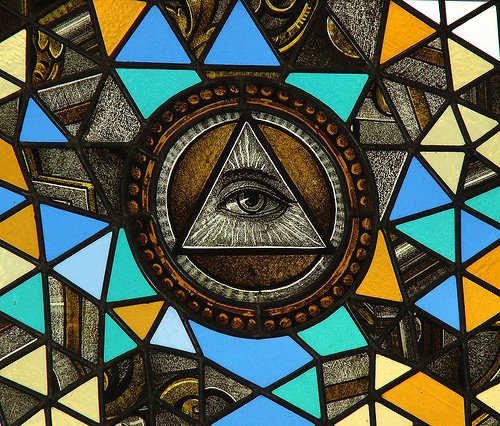Or was it?
One of the things that you notice when you research any dissenting point of view (pacifism during World War I and World War II, to take a recently-relevant example) is that you often find that it was more common than conventional wisdom would have you believe. The thing is, history is a political exercise - and so dissenting accounts are often written out of the primary narrative.
This doesn't have to be actively conspiratorial - people work according to their own biases, and the science suggests that humans are really bad at being fully conscious of these. Also, if certain behaviours or attitudes were shameful or dangerous at certain points in history*, it makes sense that people who held those views or indulged in those behaviours would tend to be secretive for reasons of self-preservation (and thus not make it into the "official" history).
My point is that commentators like "Mike" often suggest that the increasing visibility of (for example) gay, trans, and other gender/sexuality issues is the result of a more accepting society making those lifestyles more common; or (for another example) that the recent spate of publicised police violence in the US is the result of criminals becoming more dangerous (or sometimes of police becoming more racist); or that increasing rates of reported sexual assault are the result of a lapse in society's morals.
I think this it's much more likely that our more accepting society (plus the boom in self-publishing on the internet) is simply making it easier to talk about all of these issues in public, in a form that is semi-permanent and easy to refer back to.
It's not that none of these things happened in the 50s - they just happened in the dark, and now we're turning the lights on.
***
Love & Pop has my review of Life Of Crime. It's a Coen-brothers-esqe people-being-bad-at-crime movie with Jennifer Aniston and Mos Def in it. It's not bad.
_____
*Homosexuality and socialist views both come to mind.

Not everything can be kept in the dark, however. Dead bodies are hard to handwave away. That's why the homicide rate is usually used as a proxy for the violent crime rate in historical studies. And I'm afraid the homicide rate really was lower in the 1950s than today, and really did rocket up in the 1960s and '70s. (After which it plateaued in the '80s and '90s and is now coming down again.) But in more general terms you are correct: the overall trend for all kinds of violence is downward, and you hear more about it these days because the trend for acceptance of violence is running downward ahead of it.
ReplyDeleteYou are indubitably correct!
DeleteI guess I was also trying to (though probably not clearly enough) rubbish the idea that society had a more homogeneous "golden age" and that getting everyone to shut up about everything that bothers them and get back in their respective closets is the answer to world peace and harmony.